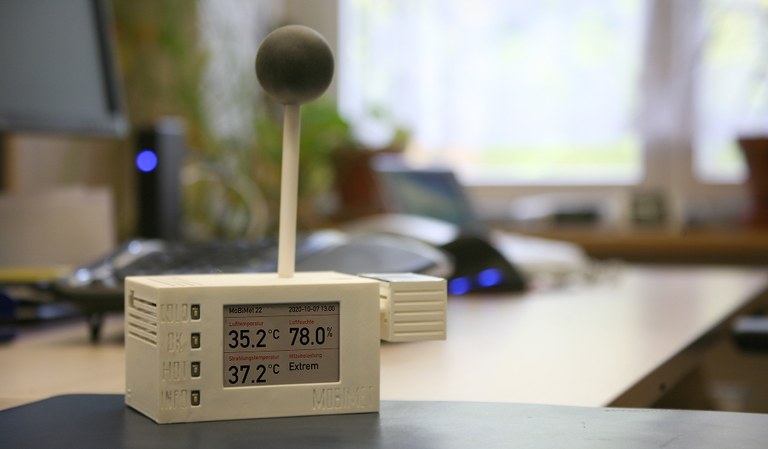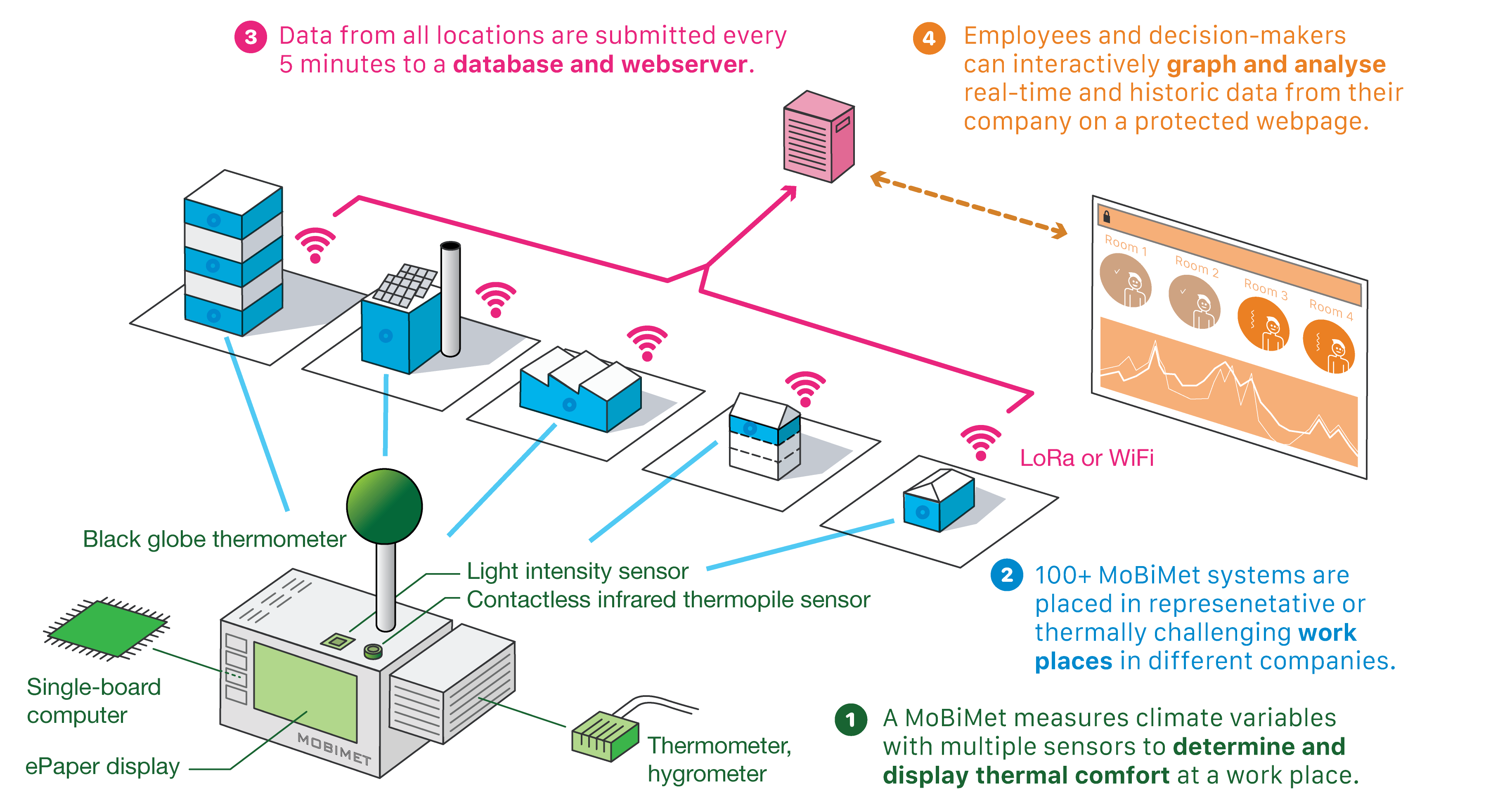Clim'ability Design
Clim’Ability Design is co-financed by the European Union (European Fund for Regional Development, ERDF) and the Albert-Ludwigs-Universität Freiburg as an INTERREG project and runs from 2019-2023.
The goal of Clim’Ability Design is to strengthen the transnational adaptive capacity of SMEs in the Upper Rhine region with regard to climate change and its challenges. This is achieved through the use and exchange of information, experience and other forms of knowledge acquisition and communication. The project team identifies regionally differentiated climatic stress factors on selected industries and their effects on work processes and employees. More on this....
The Chair of Environmental Meteorology at the University of Freiburg is designing and implementing a real-time monitoring system in cooperation with the Center for Medical-Meteorological Research of the German Meteorological Service to determine the thermal stress at specific work situations in SMEs. The aim of the real-time monitoring system is to collect human-biometeorological data at a large number of representative workplaces in selected SMEs. These data are intended to quantitatively describe the thermal situations and its small-scale variability under different work situations. It is assumed that there are significant differences in thermal stress at workplaces within a company (e.g. air-conditioned office, factory hall, outdoor area, driver's cab, etc.) and between regions (Vosges, Upper Rhine Plain, Black Forest, etc.). Therefore, a rather broad comprehensive collection of data is superior over high-quality data.

The "Mobile Biomet System" (MoBiMet) developed at the Chair of Environmental Meteorology uses low-cost parts to measure all relevant quantities of heat stress. A MoBiMet calculates indicators of thermal comfort and uses this information to improve location- and room-specific biometeorological weather forecasts via WiFi, LoRa or LTE.
We have developed a network of 120 low-cost systems based on a network-compatible microcontroller. These "MoBiMet" systems (Mobile Biometeorology System) continuously measure air temperature, humidity, radiation temperature, light and wind , the latter at outdoor stations only. Each MoBiMet is network-compatible and calculates current thermal stress indices such as PET or UTCI. The server blends data with the official heat warnings and biometeorological forecasts of the weather services to enable workplace-specific forecasts as part of location specific model output statistics.

Data collected by the real-time monitoring system is pushed to a server, where it can be visualised and analysed.
Researchers involved
- Prof. Dr. Andreas Christen (PI)
- Prof. Dr. Andreas Matzarakis
- Prof. Dr. Dirk Schindler
- Markus Sulzer, M.Sc.
Collaborators
- Zentrum für Medizin-Meteorologische Forschung of the German Meteorological Service
- Météo France
- INSA Strasbourg
- Geography at the University of Freiburg
- Hochschule Offenburg, Fakultät Medien und Informationswesen
- Complete list of all institutional partners participating in Clim'ability Design
Selected publications
- Sulzer M, Christen A 2024: Climate projections of human thermal comfort for indoor workplaces. Climatic Change 177, 28.
- Sulzer M, Christen A, Matzarakis A, 2023: Predicting indoor air temperature and thermal comfort in occupational settings using weather forecasts, indoor sensors, and artificial neural networks. Building and Environment, 234, 110077.
- Sulzer M, Christen A, Matzarakis M, 2022: A Low-Cost Sensor Network for Real-Time Thermal Stress Monitoring and Communication in Occupational Contexts. Sensors, 22 (5): 1828.

